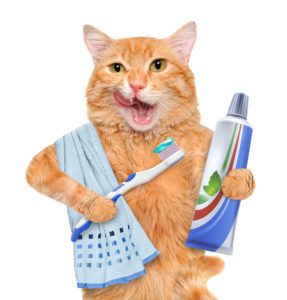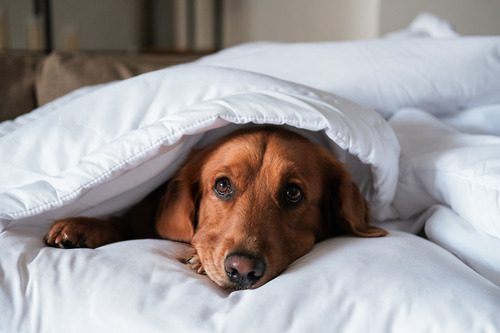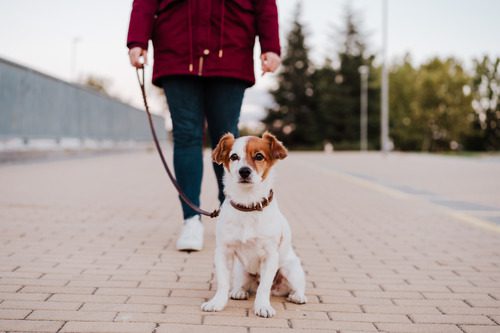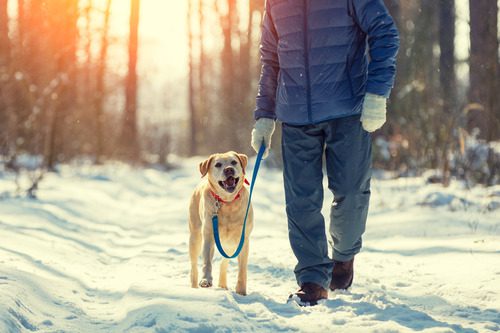Chatty Cats: Why Do Cats Chatter Their Teeth?
Chatty Cats: Why Do Cats Chatter Their Teeth?
Cat parents tend to know every sound their cat makes. However, some may not know about chattering. Chattering has been linked to hunting behavior in both domestic and wild cats.
Cats chatter their teeth to imitate the prey they are stalking, which is associated with the cat’s hunting instincts. Cats may chatter with excitement or frustration when they cannot reach their prey. A cat may have their eye on a bird they see outside, and chattering is a natural response.
Your feline companion is a born hunter, and they may require a good distraction to help them when they cannot actively pursue their prey. If you want to know more about why cats chatter with their teeth, check out this article.
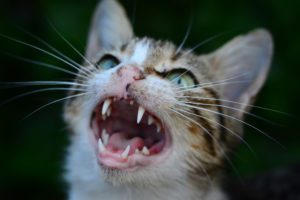
What is Chattering in a Cat?
Chattering is a noise a cat makes when the sight of prey or some visual stimulus entices them. It is often accompanied by them moving their jaw up and down quickly, engaging the teeth. It can sometimes sound like human teeth chattering or a low-pitched guttural sound. There may be breaks in between each “chattering.” The cat will often appear focused or intense while making this sound.
Why Do Cats Chatter Their Teeth?
Research has identified chattering as a hunting behavior in wildcats. Scientists were observing the margay, a type of spotted wildcat living in the Amazon. They saw a few pied tamarin monkeys, and this wildcat began chattering as a domestic cat would. The cat mimicked the sounds of the monkeys to trick them into believing that the margay was one of them.
It is a case of a cat copying the sounds of their prey, which can occur when a wild cat is looking for unsuspecting, delectable prey to feast upon. Most domesticated cats harbor these same hunting instincts as they chatter when they spot a prey animal. The following provides more in-depth information about why cats chatter their teeth:
Chattering Comes from the Instinct to Hunt
Make no mistake, your adorable cat is an adept and skilled predator posing as a spoiled indoor feline princess in her little pink designer cat bed. However, when she goes and sits by the window sill, she becomes a ferocious wild cat, ready to pounce on whatever prey she is spying on that is outside. Some of the common prey animals for cats include:
- Birds
- Mice
- Moles
- Rabbits
- Squirrels
- Chipmunks
Researchers have concluded that the margay and the housecat have more in common than was initially thought. When a domestic cat sees potential prey out the window, such as a sweet songbird or a scrumptious-looking squirrel, they will chatter their teeth, trying to trick the animal, just like the margay does in the Amazon.
Chattering to Activate a Scent Gland
Cats have a special scent gland located at the roof of their mouth, directly behind their nose. Chattering could activate this scent gland if they feel they are not getting a good view of the blue jay flying back and forth from the trees. By using their scent glands, they may be able to detect the pheromones of their prey. You may find your feline with their mouth agape when they do this.
Chattering Out of Excitement
The most common reason for a cat to chatter is out of excitement. The animals they see outside provoke arousal and response to an impulse. They are so excited they must chatter. It means that if your cat were outside, they would be going in for the kill at that precise moment. Some other signs your cat is excited by prey include:
- Twitching tail
- Pounce posture
- Big, wide eyes
- Head bobbing
When you see your cat getting excited by a prey animal, they are preparing themselves to attack. Your cat may be watching a cardinal on a bird feeder, or they see an uninvited mouse quickly darting across the kitchen floor. As their mouth is watering, their noise illustrates that they are excited about possibly grabbing a snack.
Chattering Due to Frustration
Your cat may chatter out of frustration because they cannot reach their target. Looking out the window may have lost its appeal, and they have realized that they will not get that bird or squirrel from them sitting inside by the window. Your cat will go from super excited to frustrated. The chattering may express the frustration they are feeling.
Chattering Acts Out the Kill Bite
Your cat may chatter with their teeth because they act out the “kill bite.” This occurs when the cat grabs the neck of the prey animal and bites down. Chattering is their way of preparing for the killing bite. It could be your cat’s reflex action when they think they can snatch up their victim. Your cat is acting out the killing bite without the actual prey in their mouth.
Chattering Could Signify a Dental Issue 
Your cat could also be chattering due to a dental issue. It might indicate that your feline has resorptive lesions on their teeth. IT could lead to holes in the teeth, wasting teeth, or changing tooth roots to the bone. Some of the signs your cat has resorptive lesions include:
- Increased salivation
- Bad breath
- Difficulty chewing
- Oral bleeding
- Pain when eating
- Dropping food from the mouth
- Chewing only on one side of the mouth
You may also see your cat running away when food is put in front of them, and there could also be signs of gingivitis, which presents as bright red areas of the gums. If your cat is experiencing resorptive lesions in their teeth, the chattering will typically occur when they eat or groom themselves.
How Can I Help My Chattering Kitty?
You should not allow your cat to hunt a poor innocent live bird, but you can help them by satisfying their hunting instincts with fun toys and games. A cat wand is one of the best tools for this purpose. FUPUSON makes a cat wand with bird teaser toys with natural bird feathers so cats can chew to their heart’s content.
Drag the toy away from them, and let them come chase after it as you flick it a little to simulate a real prey animal. Keep the toy far from your cat so they can move closer to play. Allow your cat to grab it with their paw or snatch it up in their mouth to relieve their frustration. Your cat will love going after their “prey.”
The better the enrichment options you provide for your cat, the less they will be tempted to go outside, as it is better to have an indoor-only cat. Interactive play is essential for your cat because it satisfies their natural inclination to hunt without causing any harm to wildlife or putting your cat at risk.
Playtime is great mental stimulation for your feisty feline and is suitable for bonding with your cat. The next time you see your cat sitting by the window, staring at a tasty morsel and chattering, you can relieve their frustration simply by playing with them.
Conclusion
Chattering is a cat’s noise associated with their strong hunting instincts. It may be due to excitement or frustration, or they could act out the “kill bite.” However, if you suspect it may be a dental issue, get them to the vet immediately.
For cat parents in the Plymouth Meeting, PA area, The Village Vets are available to serve you and your pet. Call us today at (484) 820-1700 or make an appointment.
Recent Posts
About The Village Vets
The Village Vets of Plymouth Meeting offers excellent service to clients in a comfortable, friendly atmosphere. To learn more about us and how we can better serve you and your pet here in Plymouth Meeting, PA, click the button below.
Share This Post
Recent Posts
About The Village Vets
The Village Vets is a network of three animal hospitals based in Atlanta, GA and the surrounding area. We offer honest, excellent service to our clients in a comfortable, friendly atmosphere. To learn more about our locations and how we can better serve you and your pet, click the button below.


